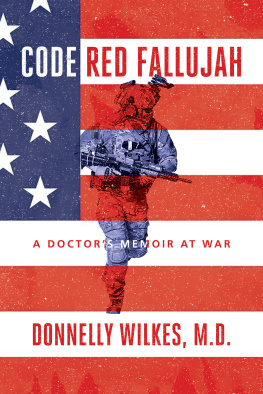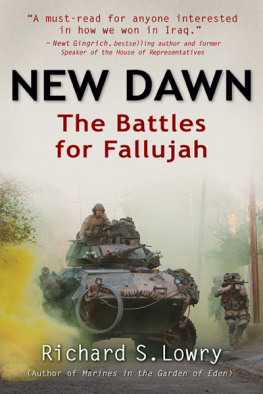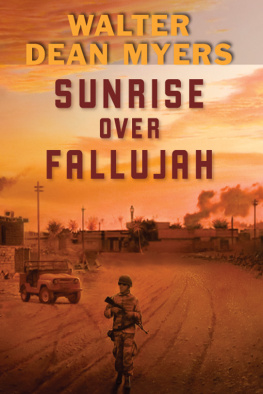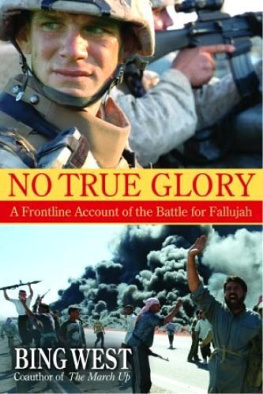


Naval Institute Press
291 Wood Road
Annapolis, MD 21402
2014 by Daniel R. Green and William F. Mullen III
All rights reserved. No part of this book may be reproduced or utilized in any form or by any means, electronic or mechanical, including photocopying and recording, or by any information storage and retrieval system, without permission in writing from the publisher.
Library of Congress Cataloging-in-Publication Data
Green, Daniel R.
Fallujah redux : the Anbar Awakening and the struggle with al-Qaeda / Daniel R. Green and William F. Mullen III.
1 online resource.
Includes bibliographical references and index.
Description based on print version record and CIP data provided by publisher; resource not viewed.
ISBN 978-1-61251-143-6 (epub) 1. Iraq War, 20032011CampaignsIraqFallujah. 2. Iraq War, 20032011CampaignsIraqAnbar (Province) 3. United States. Marine CorpsHistoryIraq War, 20032011. 4. CounterinsurgencyIraqAnbar (Province) 5. Qaida (Organization) 6. Iraq War, 20032011Personal narratives, American. 7. Anbar (Iraq : Province)Politics and government2003 I. Mullen, William F., III. II. Title. III. Title: Anbar Awakening and the struggle with al-Qaeda.
DS79.764.F35
956.7044'345dc23
2014024766

 Print editions meet the requirements of ANSI/NISO z39.48-1992 (Permanence of Paper).
Print editions meet the requirements of ANSI/NISO z39.48-1992 (Permanence of Paper).
22 21 20 19 18 17 16 15 14 9 8 7 6 5 4 3 2 1
First printing
Maps created by Jay Karamales.
Even when all the experts agree, they may well be mistaken.
Bertrand Russell
How you start is important, but it is how you finish that counts. In the race for success, speed is less important than stamina. The sticker outlasts the sprinter. In America, we breed too many hares, and not enough tortoises.
B. C. Forbes
The tribe was a community which went on forever, because it was based on family relationship, not on the ups and downs of politics.
John Bagot Glubb, former British officer, 1948
My duties were simple; I was to encourage the local inhabitants to stand up for themselves.
Alec Kirkbride, former British officer, colleague of T. E. Lawrence, and diplomat, 1971

 Contents
Contents 



A s 2014 began, Fallujah, Iraq, was once again in the headlines across the United States as al-Qaedaaffiliated forces seized the city, hoisted their black flag over its government offices, and announced their return to power. As a Marine officer who had served in Fallujah and had the great privilege of leading our forces there, this news greeted me like a thunderbolt as it did thousands of veterans who had served and sacrificed in Iraq during Operation Iraqi Freedom. Some military veterans lamented the loss calling into question whether the great sacrifices of our service members and our country were worth the result. No single battle, no one event was ever going to determine whether Coalition Forces fundamentally defeated al-Qaeda in Iraq or across the world, because defeating an idea requires more than just force of arms. As was always the case, it is up to the Iraqis to win or lose the struggle against radical Islam in their own country. Regardless of ones opinion of the war in Iraq, there can be no question our forces performed brilliantly in fighting this radical menace, and even if al-Qaeda in its various forms remains on the march in the region and globally, our troops met every test and made every sacrifice to liberate Al-Anbar and Fallujah from this scourge. The opportunity to give the Iraqi people the chance to chart a future course without violence, where political compromise and the struggles of politics replaced the struggle of arms, was the greatest gift our soldiers, sailors, airmen, and Marines could give the Iraqi people. The fact that Iraqi politicians have squandered that gift does not diminish what we did in Al-Anbar.
The year 2014 is important in other ways as well, since it is also the ten-year anniversary of the battles for the city, respectively Operation Vigilant Resolve in April 2004 and Operation Phantom Fury in November 2004, which began the process of helping the Iraqi people turn against al-Qaeda. These battles secured the city and permanently enshrined the word Fallujah into the minds of the American people. The battles fought there now occupy a sacred place in the storied annals of the United States Marine Corps. The sacrifices to secure Fallujah were significant, and while U.S. forces decisively defeated the al-Qaeda militants, absent a local Iraqi partner to hold the city a smoldering insurgency remained. As the Anbar Awakening movement began in 2006, a new opportunity was created for U.S. forces to more actively partner with the Iraqi people to help them turn against terrorism and foster a peaceful society. As villages, tribes, and neighborhoods joined local police forces and began the process of rejecting al-Qaeda, this popular uprising slowly inched its way eastward from the town of Al Qaim on the Syrian border to Fallujah. As tribal engagement efforts began to bear fruit and a comprehensive counterinsurgency approach was applied to Al-Anbar Provinces cities such as Ramadi and Fallujah, the al-Qaeda insurgency began to recede.
By the late spring of 2007 the Anbar Awakening had begun to arrive to the surrounding countryside and city of Fallujah. It was during this time that I had the privilege of leading our tribal outreach efforts to help Anbars tribes turn against al-Qaeda and to see and admire the actions of Bill Mullen and Dan Green. Their book, Fallujah Redux: The Anbar Awakening and the Struggle with al-Qaeda, shares their personal stories respectively of serving as the Marine battalion commander in charge of the city of Fallujah and the tribal and leadership engagement officer for a Naval Special Warfare unit. They both participated in and witnessed the turning of Fallujah from a perennial hot spot and symbol of the insurgency to an example of what could be accomplished in Iraq given the right leadership, experience, and conditions. In my opinion, it would be difficult to find two individuals who had a greater effect on the turning of Fallujah in 2007 than Bill and Dan. Their complementary narratives demonstrate that aligning the interests of the people with their government and enlisting the population in its own defense were instrumental to turning the province around. A balanced approach combining relentless pressure on the enemy as well as efforts to empower the Iraqis to defend and to govern themselves proved too powerful a force for al-Qaeda to overcome. The great story of Fallujahs turning against al-Qaedas insurgency in 2007 has not been fully told until now, and this is an important contribution not only to the story of Fallujah but to the greater battle for Al-Anbar and the broader struggle for Iraq. As al-Qaeda banners flutter today over some of our battle positions of 2007, it is more important than ever to commemorate and remember the sacrifices of our servicemen and -women and to recognize that their tremendous efforts led to success in Fallujah and delivered, through their blood and sweat, a potential future for the Iraqi people. Even though subsequent political decisions in Washington, D.C., and in Baghdad would reverse the fortunes of the people of Fallujah, nothing should be taken from the sacrifices of our magnificent troops during the period when Bill and Dan made such a difference. Indeed, their personal contributions, and those of our dedicated troops, produced effects and outcomes in this counterinsurgency campaign far out of proportion to their numbers. This central lesson bears remembering for the generations of Americans yet to come who choose to serve their country and renew their vows of support to our way of life and our nations security.
Next page









